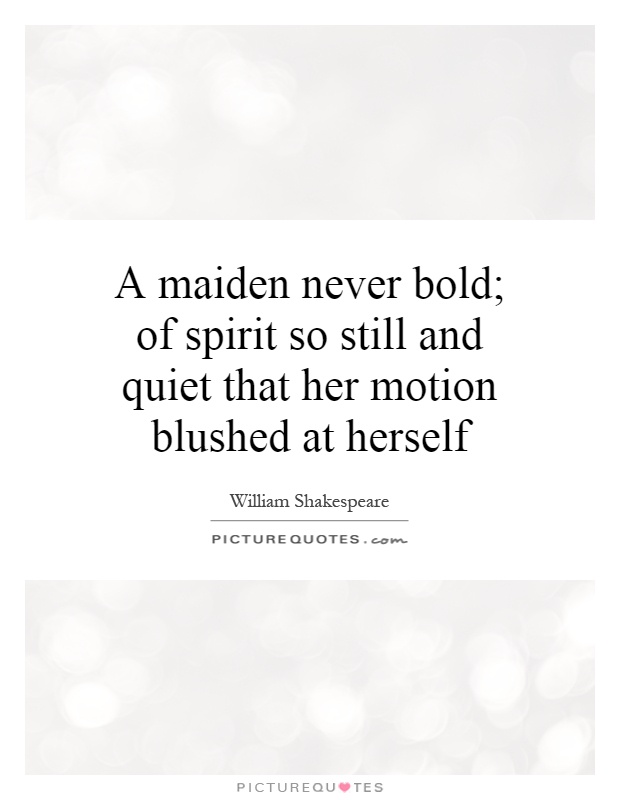A maiden never bold; of spirit so still and quiet that her motion blushed at herself

A maiden never bold; of spirit so still and quiet that her motion blushed at herself
In the world of William Shakespeare's plays, the character of a maiden never bold is a common trope that appears in many of his works. This archetype represents a young woman who is demure, shy, and reserved in her actions and words. She is often portrayed as being innocent and pure, with a gentle and quiet spirit that sets her apart from the more outspoken and assertive female characters in Shakespeare's plays.One of the most famous examples of a maiden never bold in Shakespeare's works is Ophelia from "Hamlet." Ophelia is a young woman who is deeply in love with the prince, Hamlet, but she is also obedient to her father and brother, Polonius and Laertes. Throughout the play, Ophelia is portrayed as being meek and submissive, always deferring to the men in her life and never speaking out or asserting herself. Her quiet and gentle nature ultimately leads to her tragic demise, as she is unable to cope with the pressures and expectations placed upon her by the men around her.
Another example of a maiden never bold in Shakespeare's plays is Desdemona from "Othello." Desdemona is a noblewoman who falls in love with the Moorish general, Othello, and marries him against her father's wishes. Despite her love for Othello, Desdemona is portrayed as being submissive and obedient to him, always putting his needs and desires above her own. Her quiet and gentle nature ultimately leads to her downfall, as she is unable to defend herself against the false accusations of infidelity that Othello believes.
Overall, the archetype of a maiden never bold in Shakespeare's plays serves to highlight the societal expectations placed upon women during the Elizabethan era. These characters are often used to explore themes of gender roles, power dynamics, and the limitations placed upon women in a patriarchal society. While these characters may be seen as weak or passive by modern audiences, they serve as a reflection of the social norms and values of Shakespeare's time.












 Friendship Quotes
Friendship Quotes Love Quotes
Love Quotes Life Quotes
Life Quotes Funny Quotes
Funny Quotes Motivational Quotes
Motivational Quotes Inspirational Quotes
Inspirational Quotes